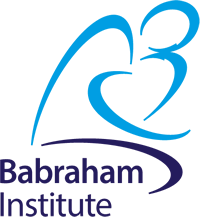Dr P Rugg-Gunn
No more applications being accepted
Competition Funded PhD Project (European/UK Students Only)
About the Project
Please click on the Babraham Graduate Programme button above for details of how to apply for this project.
Human pluripotent stem cells (PSCs) can specialise into all other cell types and hold great promise for regenerative medicine and for studying human development. PSCs can exist in two distinct states that are broadly termed ‘naïve’ and ‘primed’. Both PSC types have the ability to self-renew and to undergo multi-lineage differentiation, however, they differ in their transcriptional profiles, epigenetic state, and response to signaling factors.
Excitingly, the state-specific properties of naïve and primed PSCs reflect their similarities to pre- and post-implantation stage epiblast cells of the human blastocyst, and provide the only in vitro models for studying the molecular mechanisms that underpin the earliest stages of human development. Naïve PSCs can be generated from primed PSCs through cell reprogramming. The reprogramming of primed PSCs to a naïve state occurs at very low efficiency and is associated with substantial cell heterogeneity. This reprogramming event requires overcoming substantial epigenetic barriers including the removal of promoter-localised H3K27me3, the reactivation of the silent X-chromosome in female cells, and the loss of global DNA methylation, but how this happens is largely unknown. Uncovering the mechanisms of epigenetic reprogramming, and the impact on gene regulation, will enable new insights into the biology of reprogramming and will also develop new concepts such as whether there are multiple molecular routes to achieving naïve state pluripotency. This information will also feed into new ways to overcome epigenetic barriers, and ultimately in designing rational approaches to increasing reprogramming efficiencies.
We have recently published a molecular roadmap of the transition between primed and naive human pluripotent states (Collier et al., Cell Stem Cell 2017). By prospectively isolating early-stage naïve cells, we have begun to reveal the dynamics and the interplay of epigenetic and transcriptional events that occur during primed state reprogramming.
In the advertised PhD project, the student will test the requirement for several epigenetic factors in reprogramming human PSCs to a naïve state. He/she will begin by testing the hypothesis that the active removal of H3K27me3 from promoters is required for naïve cell reprogramming. This prediction will be examined by generating and reprogramming primed PSCs that lack KDM6A/B demethylases. On-going work in the Rugg-Gunn lab has started to use loss-of-function approaches to investigate the requirement for different epigenetic mediators and transcription factors during naïve cell formation. The student will have the opportunity to take forward several promising candidates and test how these newly identified factors could be involved. Transcriptional (RNA-seq), epigenetic (ChIP-seq; ATAC-seq) and bioinformatic approaches will provide insights into the mechanisms of the reprogramming pathways.
The overall significance of this work will be to provide new and exciting insights into the biology that underpins human pluripotency, reprogramming and the initiation of epigenetic events during development.
For more details of our research, please see: http://www.babraham.ac.uk/our-research/epigenetics/peter-rugg-gunn
References
Collier et al., Comprehensive Cell Surface Protein Profiling Identifies Specific Markers of Human Naive and Primed Pluripotent States. Cell Stem Cell. 2017 20(6):874-890.
Freire-Pritchett et al., Global Reorganisation of Cis-Regulatory Units Upon Lineage Commitment of Human Embryonic Stem Cells. Elife. 2017 6. pii: e21926.
Vallot et al., XACT Noncoding RNA Competes with XIST in the Control of X Chromosome Activity during Human Early Development. Cell Stem Cell. 2017 20(1):102-111.
Collinson et al., Deletion of the Polycomb-Group Protein EZH2 Leads to Compromised Self-Renewal and Differentiation Defects in Human Embryonic Stem Cells. Cell Reports. 2016 17(10):2700-2714.
Novo et al., The Pluripotency Cactor Nanog Regulates Pericentromeric Heterochromatin Organization in Mouse Embryonic
Stem Cells. Genes Dev. 2016 30(9):1101-15.

 Continue with Facebook
Continue with Facebook

